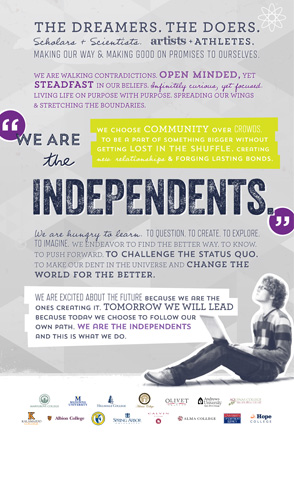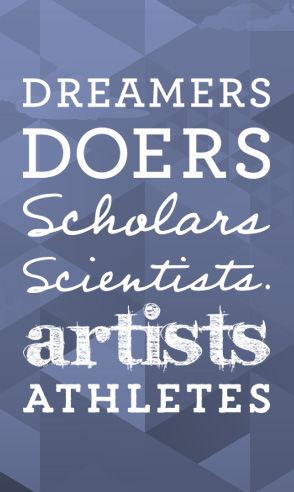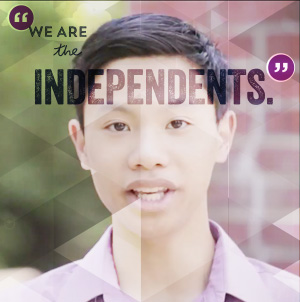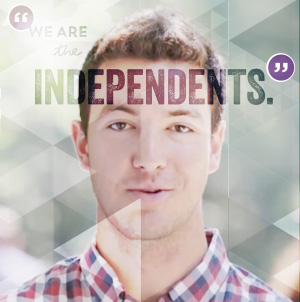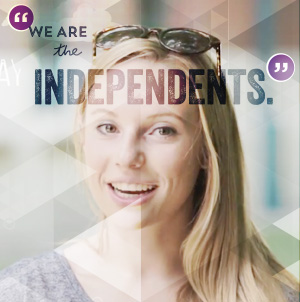Archive for February 2021
Aquinas College, the University of Detroit Mercy, Alma College and Olivet College among the nation’s top military-friendly schools
Originally posted at https://www.aquinas.edu/life-aq/posts/aquinas-college-named-one-nation’s-top-military-friendly-schools?fbclid=IwAR1xOvj_xPA0nMVZczsQoHRjQ4bk_6MrMCne3nSR-Alei64K8QmZ8i8bSXc
Aquinas College, the University of Detroit Mercy, Alma College, and Olivet College have each earned the 2021-2022 Military Friendly® School designation by Viqtory for their support of active-duty military members and veterans attending school.
The 2021-2022 Military Friendly Schools list is the longest-running and most comprehensive review of college and university commitment to serving military and veteran students. It helps service members and their families select schools that will provide education and training necessary to pursue a successful civilian career.
The list is published by Viqtory, a service-disabled, veteran-owned small business that connects the military community to civilian employment, educational and entrepreneurial opportunities through its G.I. Jobs and Military Friendly brands. The list will appear in the May issue of G.I. Jobs magazine and can be found at www.militaryfriendly.com.
“Military Friendly is committed to transparency and providing consistent data-driven standards in our designation process,” said Kayla Lopez, National Director of Military Partnerships at Military Friendly. “This creates a competitive atmosphere that encourages colleges to consistently evolve and invest in their programs. Schools who achieve designation show true commitment and dedication in their efforts. Our standards assist schools by providing a benchmark that promotes positive educational outcomes, resources, and support services that better the educational landscape and provide opportunity for the Military Community.”
Institutions earning the Military Friendly School designation were evaluated using both public data sources and responses from a proprietary survey. More than 1,200 schools participated in the 2021-2022 survey with 747 earning the designation.
Methodology, criteria, and weightings were determined by Viqtory with input from the Military Friendly Advisory Council of independent leaders in the higher education and military recruitment community. Final ratings were determined by combining the institution’s survey response set and government/agency public data sources, within a logic based scoring assessment. We measure the institution’s ability to meet thresholds for Student Retention, Graduation, Job Placement, Loan Repayment, Persistence (Degree Advancement or Transfer) and Loan Default rates for all students and, specifically, for student veterans.
Michigan’s independents recognize the importance of the sacrifices made by veterans, and make accommodations from mentoring programs and support services to ease the transition.
The colleges are purposefully small. Smaller class sizes allow passionate faculty to form bonds with students that just aren’t possible at larger universities. Instead of crowds, the colleges emphasize community. Often less expensive than public institutions, the independents boast higher four-year graduation rates and smaller class sizes for a truly unique and affordable experience.
Be bold. Be different. Go independent.
Virtual Kitchen Serves Recipes and Connects Students
Originally posted at http://www.kzoo.edu/news/virtual-kitchen/
Written by Andy Brown.
A cooking show served with a dash of Kalamazoo College is available to students this term. If you’ve ever wanted student-suitable ideas for easy-to-make, inexpensive, palate-pleasing meals that offer a change of pace and a variety of flavors, make sure to tune in.
Every Thursday, from 6 to 7 p.m., MacKenzy Maddock ’22 leads K’s Virtual Kitchen via Microsoft Teams through the Office of Student Activities (OSA). In each show, at least one student staff member cooks meals while talking with other K students.
“I make a new meal every week and try to pick affordable ingredients as well as try to include options that are vegan and vegetarian friendly,” Maddock said. “My goal is to include as many students as possible and consider their financial capacity, accessibility to resources, and interests in food. Students that participate have the option to get a cooking kit provided by the school which includes utensils used in the kitchen.”
Masoor dal, a spicy Indian red lentil soup, was a recent featured recipe prepared by Alaq Zghayer ’21, and students can expect such diverse dishes in future editions of the Virtual Kitchen.
“I’m working on diversifying the event to be more inclusive to other cultures, religions and groups of people on campus as well as to just learn about other kinds of food,” Maddock said. “I’m doing this by collaborating with the many student organizations we have on campus, and I’m excited for what the next few weeks are going to be like. I think the event is constantly developing and I would love for more participants every week.”
The event’s evening time slot makes it accessible to students across the country. Recordings make it available to students around the world. Students can register for each Virtual Kitchen by emailing k18mm01@kzoo.edu or messaging Maddock on Teams to receive access to the cooking channel, which includes previous editions to the show as well.
“I would like to think that this event is an easy way to socialize while doing something that you need to have to survive, food,” Maddock said. “I also think cooking is a huge thing that brings people together and I think that is something that is really necessary right now.”
Maddock, a double major in chemistry and psychology and a volleyball player, understands the need to unplug from a busy schedule. “I am trying to make this space a safe place to decompress after a long day of work, school, sports, etcetera, and I think that that is really worth it to the students that participate.”
Community. It’s what sets apart Kalamazoo College and Michigan’s other top 15 private colleges and universities.
They’re not merely in towns and cities. They are an integral part of their fabric, reaching beyond campus walls and greens to improve the lives of those around them.
It’s one of many differences with traditional universities.
Unlike big state schools, class sizes are small and taught by incredible faculty who help students forge their own path.
They have a deep and committed network of alumni who help after graduation. It’s an experience that simply isn’t available at traditional universities.
And despite what you may have heard, independents are often less expensive and boast higher four-year graduation rates than four-year institutions.
Be bold. Be different. Go independent.
Alma College iGEM team Examines Soil Cleanup at Local Superfund Site
Originally posted at https://www.alma.edu/live/news/2600-alma-college-igem-team-examines-soil-cleanup-at.
The Alma College iGEM team, competing at an international synthetic biology competition for only the second time, won a gold medal in November for a project being developed to break down the chemical compounds in contaminated soil at the Velsicol Superfund site in St. Louis, Michigan.
The nonprofit International Genetically Engineered Machine (iGEM) Foundation brings together more than 6,000 participants from across the world every year for its annual Giant Jamboree, which they deem “the largest synthetic biology innovation event in the world.” Synthetic biology is a field of science that involves redesigning organisms for useful purposes by engineering them to have new abilities.
The Alma College 2019 team won a silver medal at the Giant Jamboree last year for their project, the development of a counteracting bacterium to degrade Trimethylamine, or TMA, which promotes plaque formation in arteries. Devin Camenares, assistant professor of biochemistry and IGEM coordinator, said this year’s team improved to win a gold medal, despite restrictions put in place as a result of the COVID-19 pandemic.
“There were definitely challenges in terms of organizing the team and getting the work done, but the students rose to the challenge,” said Camenares. “They did a really job good of preparing themselves, communicating over the summer and completing their projects. I’m excited to see what they come up with next year and beyond.”
Abbey Killian, a junior from Traverse City and vice president of the Alma College team, said the team focused on two aspects of the ongoing soil cleanup project: one that made the project less expensive and another that made it less harmful to the environment.
Velsicol Chemical Corporation, and its predecessor Michigan Chemical Corporation, produced various chemical compounds from 1936 until 1978, when the plant shut down. The chemicals polluted the groundwater, soil and Pine River that bordered the plant. In the early 1980s, the factory was demolished, but pollution remains to this day. Federal and state agencies, as well as local groups and volunteer organizations, have for many years committed to cleaning up and rehabilitating the site.
Killian said the Alma College team is working to develop a bacterium that, when applied to soil and water samples from the Velsicol site, would be able to determine the severity of toxicity in those samples. Such a measuring stick would enable groups like the U.S. Environmental Protection Agency (EPA) to better focus their resources on impacted areas.
“We did a cost-benefit analysis and determined that this biosensor could save hundreds of thousands, if not millions of dollars annually,” said Killian. “When we made contact with the EPA and told them about our findings, they were very interested. We think our biosensor could not only save money, but also time.”
In addition to the “biosensor,” the iGEM team is also working to develop a new way to break down the chemical compound dichlorodiphenyltrichloroethane (DDT) and its derivatives, which are some of the most common contaminants at the Velsicol site. By capitalizing on the fact that full or partial pathways to degrade DDT already exist in nature, Killian said, the team is showcasing how synthetic biology can be used in a practical way.
“We want to take this chemical that exists in nature and change it in a way that is environmentally friendly,” Killian said. “It’s an ambitious goal, but if we succeed, we’ll be able to revive an ecosystem that has been damaged by problems from the past, while minimizing the risk to the future.”
The Alma College team created content for a number of media platforms to discuss the raw science it was producing in college laboratories, including a podcast, a website and a web video that mimicked a 1980s TV broadcast. iGEM teams typically present their findings in person at the Jamboree, but Camenares said that this year’s event was entirely virtual due to the pandemic.
“One of the aspects of iGEM that I really appreciate is that it forces students to not only do the research, but to communicate their findings in a way that is accessible to the public. That makes your circle wider, which means your project is more influential,” Camenares said. “The students really took advantage of the restrictions brought upon by the pandemic and produced some clever media to disseminate their message.”
Creating the “TV broadcast” led to collaborations with the student-run production company Bitworks, as well as the Alma College Theatre Department. With student “reporters” carrying large microphones on-screen, and distortion that resembled a video cassette recording, Killian said the video was an especially memorable way to get their message across.
“We decided to do an ’80s-themed video because the contamination primarily took place in the 1970s and ’80s,” she said. “It ended up being a really cool, fun collaboration with different groups across campus.”
While the results are encouraging thus far, Killian and Camenares said, the team is not finished looking into the Velsicol site. They intend to return to the competition next year — which is tentatively scheduled to be held in Paris, France — and repeat their gold medal effort.
“It felt great to improve on last year’s result and win a gold,” Killian said. “We want to keep on improving, by adding new members to our team and having the same success, on a truly international stage.”
Team members included:
Connor Arens ’22, White Lake
Gary Carter ’23, Niles
Elizabeth Elliott-Redlin ’23, Kalamazoo
Paul Fischer ’23, Bloomfield Hills
Pedro Granja ’21, Juigalpa, Nicaragua
Rhianna Haynes ’22, Lake Isabella
Madison Hibbs ’22, Whitmore Lake
Kaissidy Homolka ’23, Petersburg
Abbey Killian ’22, Traverse City
Paige Lamoreaux ’24, Benzonia
Ruby Lovasz ’22, Clio
Marleigh Matthews ’21, Davison
Aryaan Misra ’23, Noida, India
Izzy Oakley ’22, Trenton
Tatym Plath ’21, Perrinton
Kaleb Ramon ’21, Mount Pleasant
Gavin Swiecicki ’23, Bay City
Kelsey Taylor ’21, Plymouth
Commitment to education beyond the classroom is a hallmark of Alma College and Michigan’s top 14 private colleges and universities. Purposefully smaller, the colleges and universities pride themselves on helping students follow their own path, engage in the world around them, and find their passion. They emphasize community over crowds and a spirit of togetherness and cohesion.
Be bold. Be different. Go independent.








